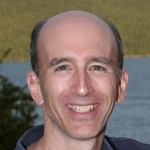 (Host)
(Host)
As we anticipate Martin Luther King Day and President Obama’s second
inaugural address, environmental educator and commentator Russ Weis is
thinking about the power of "hope," and how it relates to the future of
our planet.
(Weis) Now that the winter solstice is behind us,
and the sun is slowly expanding its daily trek across the sky, I find
myself feeling just a little bit – well – hopeful.
Martin Luther
King, Jr., whose birthday we’re about to celebrate once again, had this
to say on the subject: "We must accept finite disappointment, but never
lose infinite hope." And President Obama, author of The Audacity of
Hope, famously made hope a theme of his first campaign.
The
president re-embraced this optimistic emotion in his victory speech last
November, proclaiming at one point, "I’ve never been more hopeful about
our future…" And I’d be surprised if hope doesn’t also reappear
somewhere in the president’s upcoming second inaugural address.
It
was Alexander Pope who penned the oft-quoted line, "Hope springs
eternal in the human breast." And especially during this time of
returning daylight I’m reminded of how energy sources like solar offer
distinct rays of hope for a sustainable future.
It’s also
hopeful that the VT legislature is making climate change a focus of its
attention this session – right up there with education reform.
And
I see other good reasons for hope in various citizen activism efforts
in our state – like the Vermont Rights of Nature campaign, which seeks
to grant legal rights to Nature itself.
In response to the
Citizen’s United ruling that gave corporations the same rights as
people, activists have proposed an amendment to our state’s constitution
that would guarantee the rights of Vermont’s forests, waterways, and
wildlife to "exist, thrive and evolve." Not meant to prohibit hunting or
logging, the amendment simply hopes to ensure the ongoing integrity of
our state’s precious natural resources. So far an article supporting it
is on the ballot for Strafford’s town meeting, with advocates crafting
similar ones for other towns.
There’s also the recent campaign,
launched by VT-based 350.org, aimed at getting colleges to divest
endowment monies from fossil fuel companies. The tactic worked well back
in the ‘80s when investments were redirected away from South Africa – a
factor in the collapse of that country’s apartheid system of racial
segregation. I spent a night in jail back then, due to my own
participation in a peaceful protest against apartheid. I’d been inspired
by Reverend King’s everlasting faith in the power of citizen action to
produce positive change in the world.
Of course, hope alone is
not enough. Too many recent tragic events, whether induced by our
feverish climate or, most recently, by fevers of the mind, underscore
that fact. But there again, the great civil rights leader offers
encouragement. In a compilation of his speeches called A Testament of
Hope, he is compelling on the power of community.
Which brings
me to a final thought: one of King’s major intellectual influences was
theologian Reinhold Niebuhr, who wrote, "Nothing worth doing is
completed in our lifetime; therefore we must be saved by hope… Nothing
we do, however virtuous, can be accomplished alone; therefore, we are
saved by love."